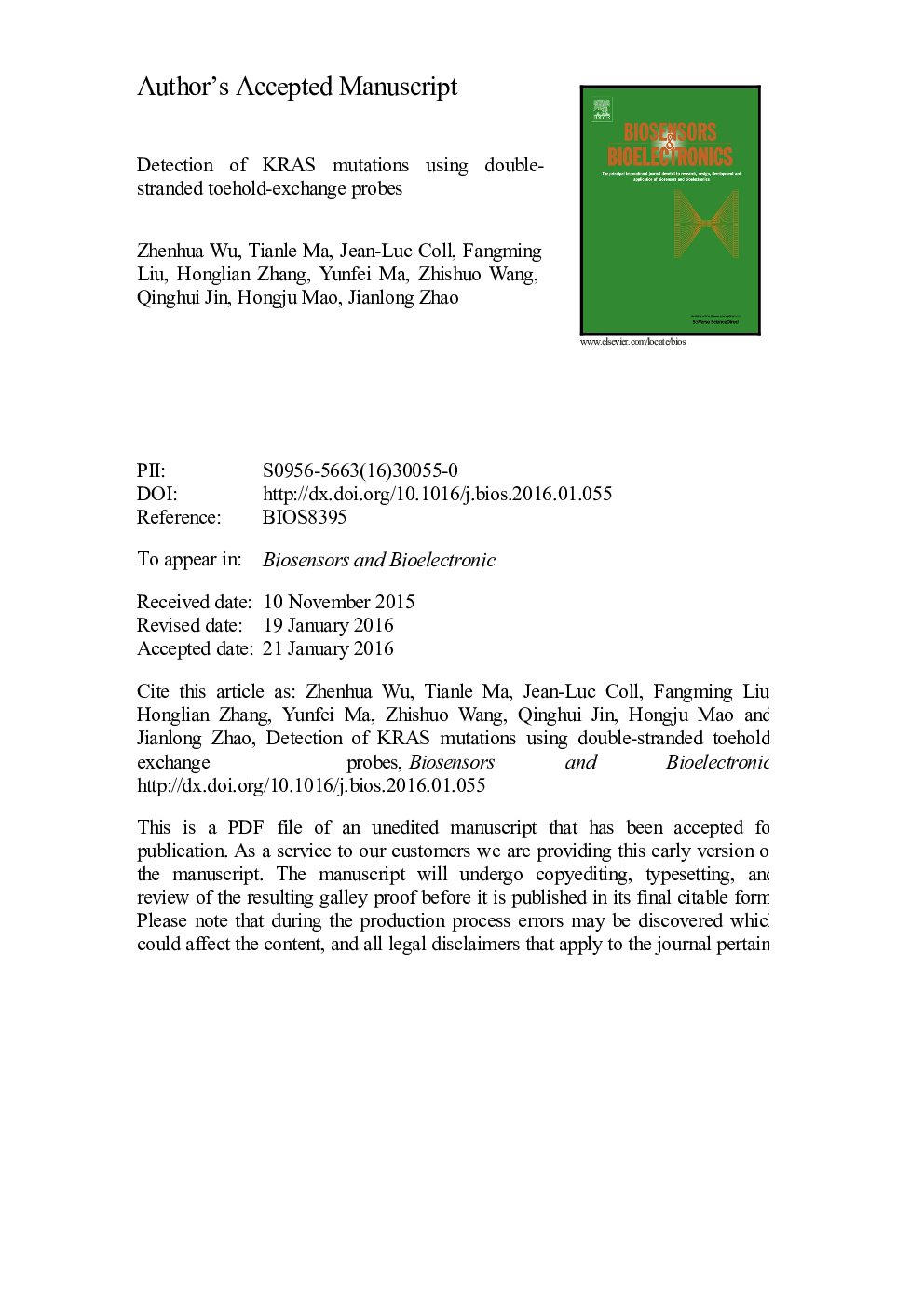| Article ID | Journal | Published Year | Pages | File Type |
|---|---|---|---|---|
| 7230703 | Biosensors and Bioelectronics | 2016 | 24 Pages |
Abstract
Detection of KRAS mutations in cancer tissues is immensely valuable for the identification of personalized genotype-based therapy. Here, we employed a double-stranded toehold-exchange probe, which is labeled with fluorescent molecules (FAM) and quenchers (Dabcyl), to detect KRAS mutations in cancer tissues. This probe was able to differentiate the intended mutation in a sample containing as little as 5% mutant alleles in a background of wild-type DNA. This probe also performed robustly at a wide range of conditions, for examples, from 4 °C to 37 °C, from 200 mM Na+ to 1 M Na+, and from 200 mM K+ to 500 mM K+. Furthermore, we validated the practicality of this probe in a clinical setting using 8 pairs of cancer tissue samples and their NT (corresponding adjacent nontumorous tissue) samples. All the results generated from the probe detection agreed with those from direct sequencing. Combining features of extreme high specificity and robustness, this probe is a valuable tool for reliable diagnosis of cancer-related mutations.
Related Topics
Physical Sciences and Engineering
Chemistry
Analytical Chemistry
Authors
Zhenhua Wu, Tianle Ma, Jean-Luc Coll, Fangming Liu, Honglian Zhang, Yunfei Ma, Zhishuo Wang, Qinghui Jin, Hongju Mao, Jianlong Zhao,
